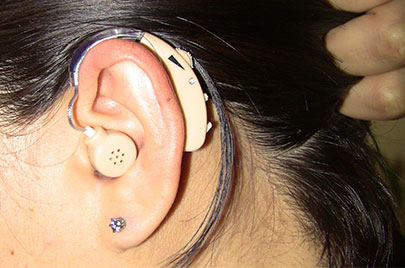Hearing tends to deteriorate naturally as we grow old. It may not be noticeable until about 60 years of age or so. Nearly 60% of people over the age of 60 years have hearing deficit due to the ageing process. Here is a checklist to help you assess your hearing.
If you answer ‘YES’ to any of the above questions, you need to consult your doctor and explain your concern about your hearing. There could be many different reasons why you are not hearing as well as you used to, so your doctor will need to examine your ears and ask you a few questions to find out what the problem is. For example,you may have a lot of wax in your ears which can be removed, or you may have an infection which can be treated. However, if your doctor can find no obvious cause for your hearing loss, he or she will refer you to an ear, nose and throat (ENT) specialist. If your hearing loss is simply due to your age, the specialist will explain that there is no ‘cure’, and will probably offer you a hearing aid. Do try one. It is likely to be very helpful.
HEARING AID
A hearing aid is designed to amplify sounds and make them louder. The amount of amplification you need depends on the type and degree of your hearing loss. Hearing aids will amplify all sounds, but are particularly designed to cope with the sounds that make up speech. Sounds are made up of different pitches or ‘frequencies’. A hearing aid amplifies these different pitches by different amounts because when you have a hearing loss, you usually hear some frequencies better than others. Older people usually find the high frequencies more difficult to hear. You may often be able to hear the sound of speech but not the actual words.

There is a wide range of hearing aids to cater for all needs. Hearing aids are available commercially. There are a number of different types of hearing aids to choose from, although not all will necessarily be suitable for you. Some people find ‘in-the-ear hearing aid’ more discreet and appealing as it fits right into the ear. This type of aid is not usually suitable if you have a severe hearing loss. ‘Body-worn aid’comes in the form of a small unit worn on the chest, with a lead connecting the unit to an earphone and ear-mould. It is more cumbersome than other types of aids. But because of its size, it is easier to operate and can provide higher levels of amplification.
A hearing aid will not restore your hearing to normal, or ‘cure’ your deafness. It is simply an ‘aid to hearing’. When you use a hearing aid for the first time, everyday sounds may seem quite loud. It could take several months to get used to hearing sounds in a new way. If you have any problems during this initial period, you should always return to the person who supplied it for further advice.
You will probably find that your hearing aid is more helpful in some circumstances than others. You will need to experiment. Remember that hearing aids are most useful in quiet surroundings
when you are talking to only one or two persons at a time. Background noise, such as music or other people talking, will tend to interfere with what you are trying to hear. Despite this, your hearing aid can still be helpful in busy, noisy places.